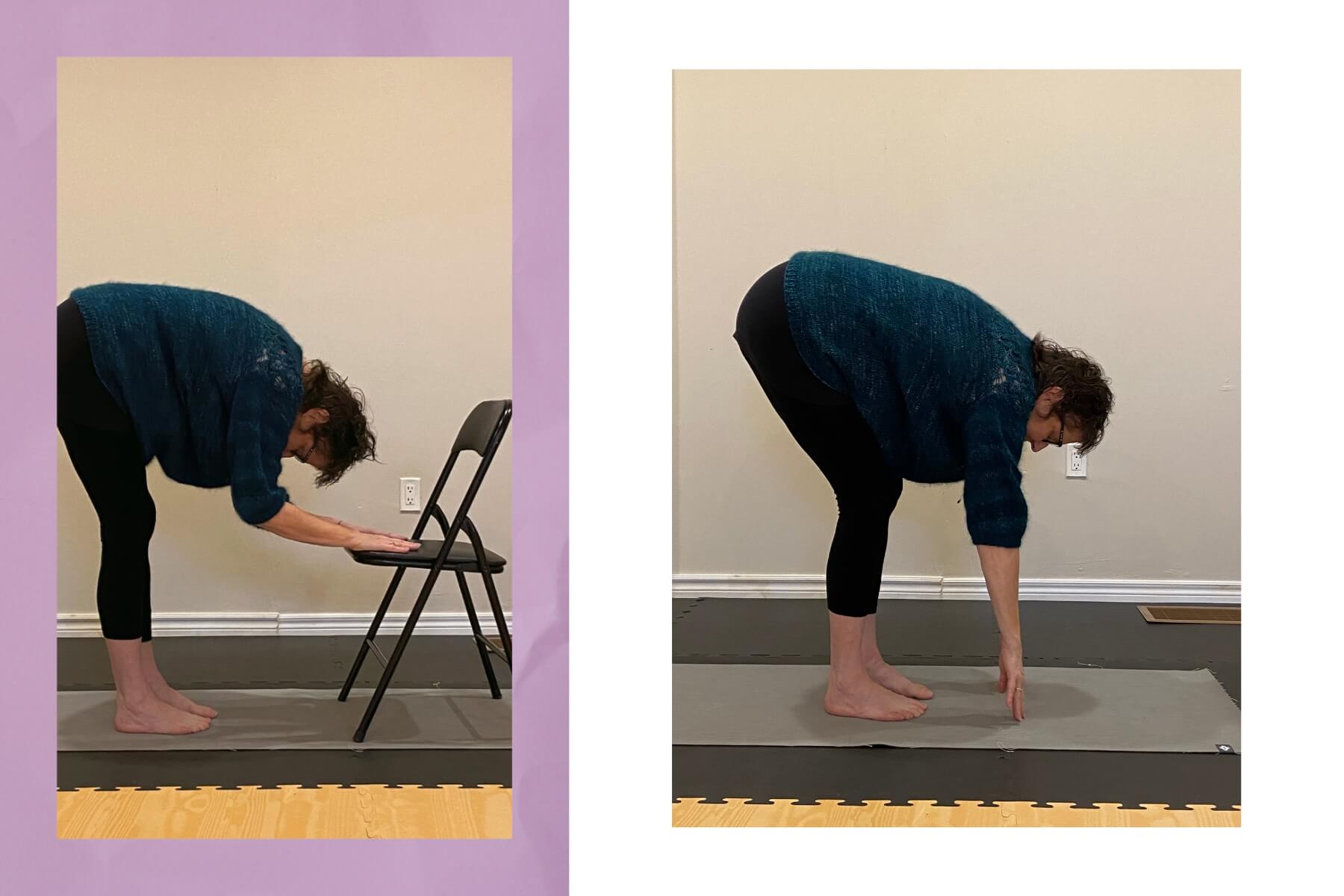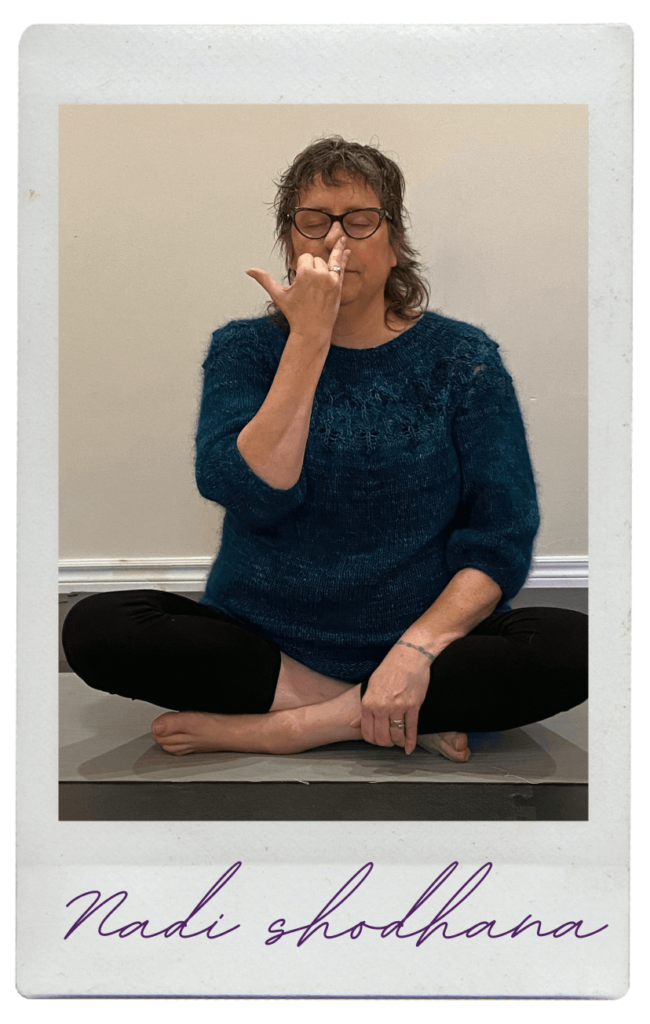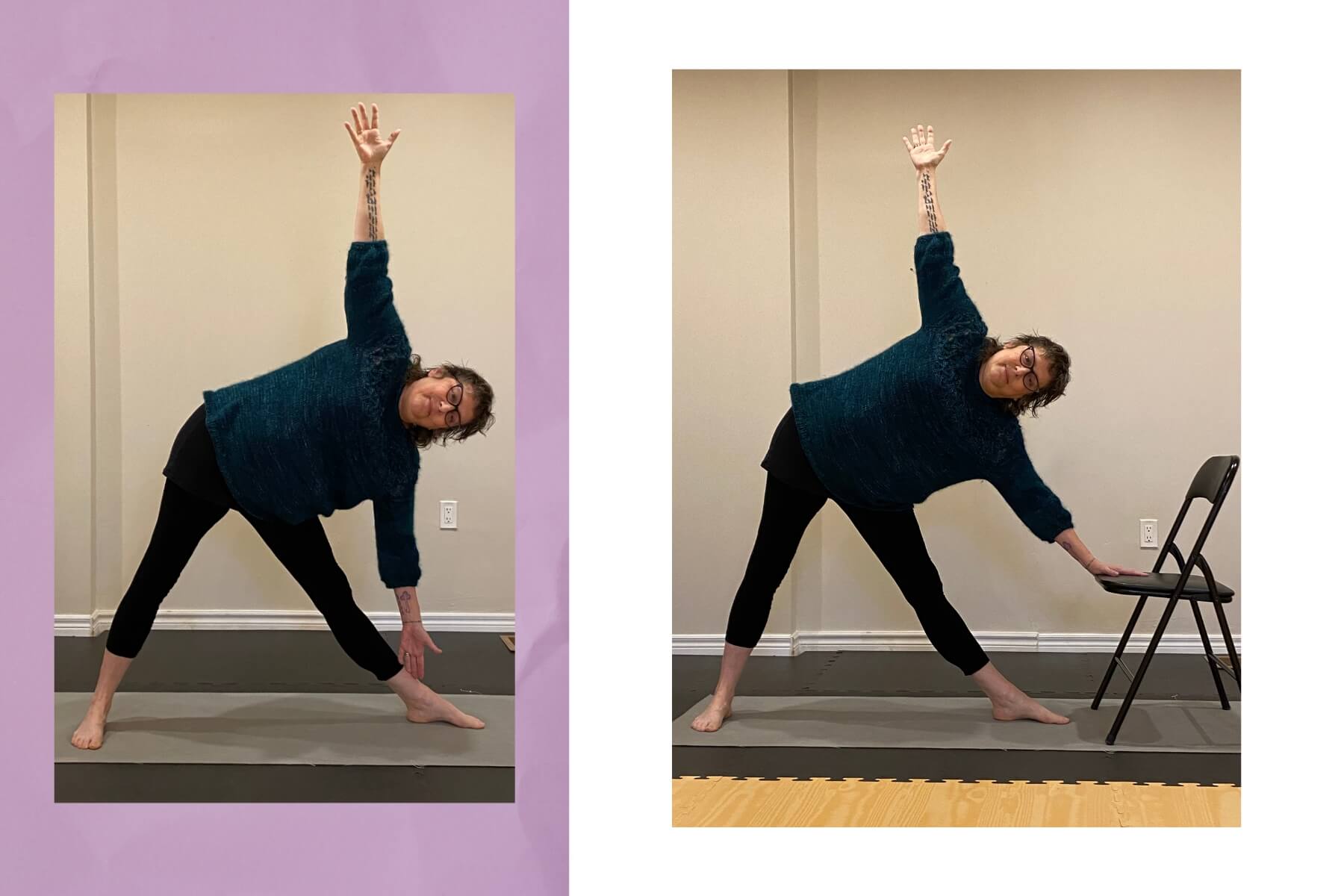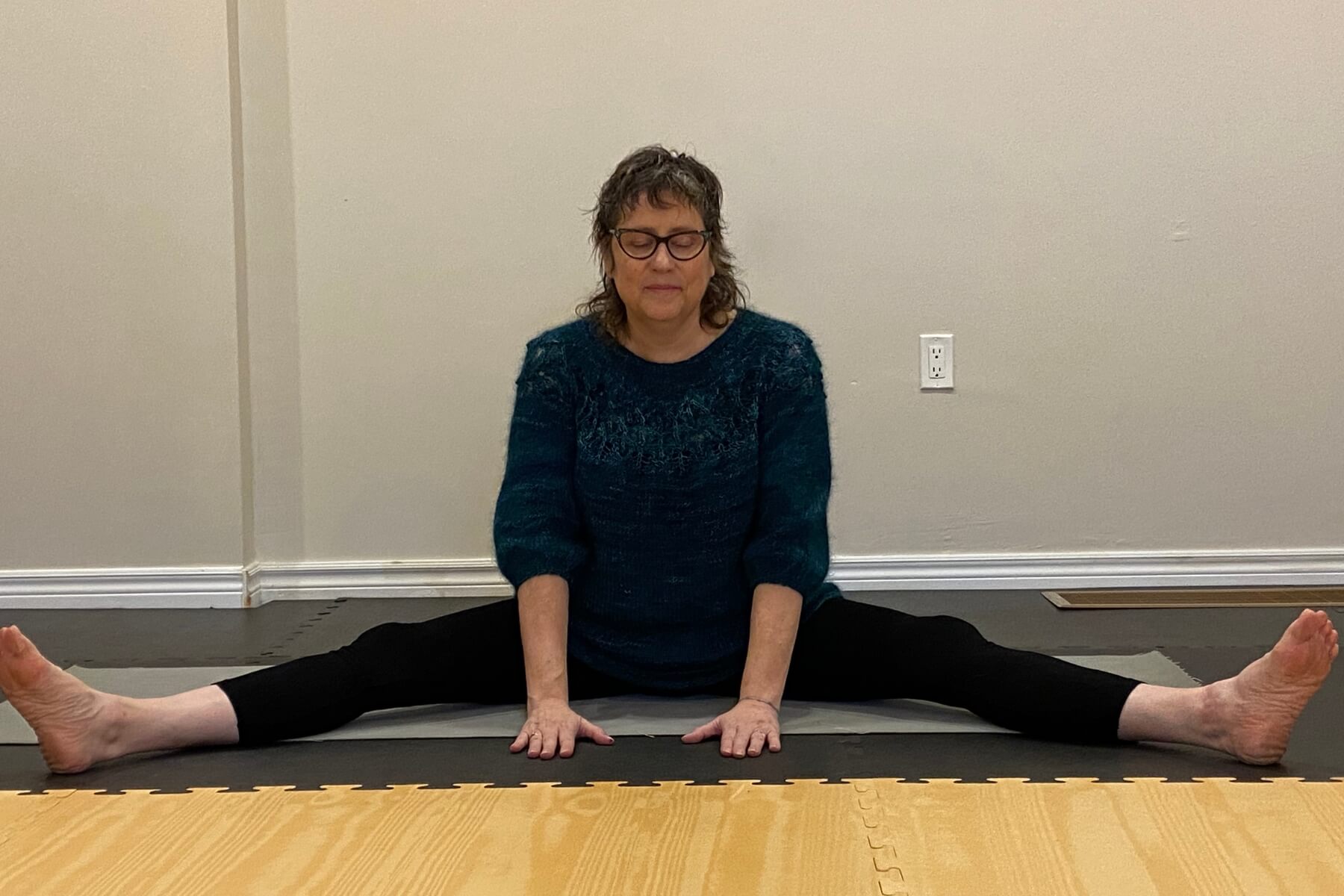I cannot tell you how many times I’ve heard, “I can’t do yoga. I’m not flexible. I can’t even touch my toes!” I have even said it…multiple times!! Recently I began to ponder, “Why do we think flexible is defined by touching our toes??”
The Cambridge Dictionary defines flexibility in two ways.
“the ability to change or be changed easily according to the situation” and “the ability to bend or to be bent easily without breaking.”
Hmmm…no mention about having to touch your toes. Does flexibility come easy or is it something to be practised!!??!!
Yoga is a practice that increases flexibility. The assumption is that we are speaking about the body. The practice of yoga increases flexibility in many other ways.

Yoga increases the flexibility of the breath. Breathwork is called pranayama. There are many different pranayama practices. The original pranayama is breath awareness. Feeling your natural breath pattern, becoming more aware of how you breathe without changing it. You already practice some pranayama(s) in every day life. Have you ever taken a deep breath and counted to ten? Or puckered your lips and taken a deep inhale? All pranayama(s)! Nadi shodhana, alternate nostril breathing, is one of my favourite pranayama(s). It is a balancing breath that stills the mind and soothes the nervous system. It also assists in balancing the subtle energies of the body.

Hidden behind most attachments is the desire to control our own narrative. Controlling images, wealth, thoughts and perceptions of ourselves and others. Our world rewards us with praise, likes, followers and the title of influencer, guru or star. Even in the Harry Potter series, Professor Slughorn likes to “collect” students who are famous or infamous or have the potential to be. He gained prestige not by who he was but by how they were and his association to them! What collections do you have?? Dishes used only once or twice a year? How about my fellow creators? A hoard of yarn, pens or supplies?? Do you spend time in yoga poses because you do them so well? What about the thoughts you have about yourself or others that are on repeat in your mind?
Yoga increases the flexibility of the mind. From the thoughts that we think, to our neural pathways, all change during and after a yoga practice. Yoga increases neuroplasticity.
“neuroplasticity – the ability of the brain to form and reorganize synaptic connections.”
Oxford Dictionary
Yoga helps our brain reorganize itself! Additionally, when move the right side of the body in a different way than the left side of the body, we increase brain health. Knitting does the same thing!

Yoga increases flexibility of our entire nervous system. Both asana and pranayama can either stimulate or soothe the nervous system. Viparita karani, legs up the wall, encourages a relaxation response while bhastrika, bellows breath, can “fire” up your energy. Restorative yoga increases the relaxation response and helps you chill out!

Yoga increases flexibility because YOGA IS FLEXIBLE!! Each asana has many variations! No asana is more yogic than another. All variations are the full expression of the pose! And each pose is as unique as you are. Balasana, child’s pose, is not always soothing; viparita karani can be irritating; nadi shodhana may not be relaxing! It depends on YOU! It is the many variations of the yoga asana and pranayama that allow you to customize your practice to increase flexibility in your body, mind, soul and your life! And isn’t that the definition of flexibility that we are all searching for?

Laurie Anne
So sorry to hear of the loss of your Dad. My thoughts and prayers are with you and your family at this time of your immense loss .
God Bless,
Cynthia
Thank you Cynthia!